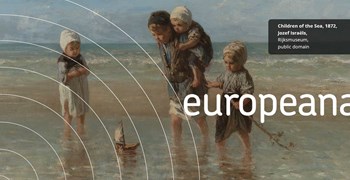Viva Rio!
In Europeana, you will find over 53 million artworks, artefacts, books, videos and sounds from across Europe. But our collections cover more continents than just Europe.
So with athletes, media and spectators arriving in Rio de Janeiro for the 2016 Olympic Games, we’ve selected some historic photographs of the city, from when it was still the capital of Brazil (a title it held until 1960).
Europeans have been visiting Rio de Janeiro for centuries. The photographs selected here date from the 20th century, when Rio became known as a tourist attraction and they feature some of the city’s best known sights.
This photograph (from the collection of the Norwegian Museum of Science and Technology) is one of the earliest in the collection, estimated to date from between 1890 and 1910. It shows the Gloria neighbourhood in Rio’s historic centre, with Sugarloaf Mountain in the background.

Syd-Amerika, Rio de Janeiro, Severin Worm-Petersen, Norsk Teknisk Museum, CC BY
Rio’s reputation as a tourist attraction grew through the early years of the 20th century, particularly as the city expanded to the south. The Copacabana beach-front neighbourhood developed following the construction of a tunnel connecting it to the city’s historic centre. In 1923, the Copacabana Palace Hotel opened, and became famed as South America’s premier hotel.
The two photographs below from the collection of the Circus Museum were taken during a Sarrasani Circus tour to South America in the 1930s. They show Copacabana Beach, with its promenade geometric wave mosaic.

Rio de Janeiro – Praia Copacabana, Circus Museum, CC BY-SA

Rio de Janeiro – Praia Copacabana, Circus Museum, CC BY-SA
Finally, from the Historic Postcard collection of the University of Osnaburk, this postcard dated 1938 shows a palm-tree lined street with the famous Christ the Redeemer statue atop Corcovado mountain in the background.

Rio de Janeiro – Rua Pay[s]andú, Universität Osnabrück | Historische Bildpostkarten, CC BY-NC-SA
Explore more: Photographs of Rio de Janeiro from the Deutsche Fotothek library.











